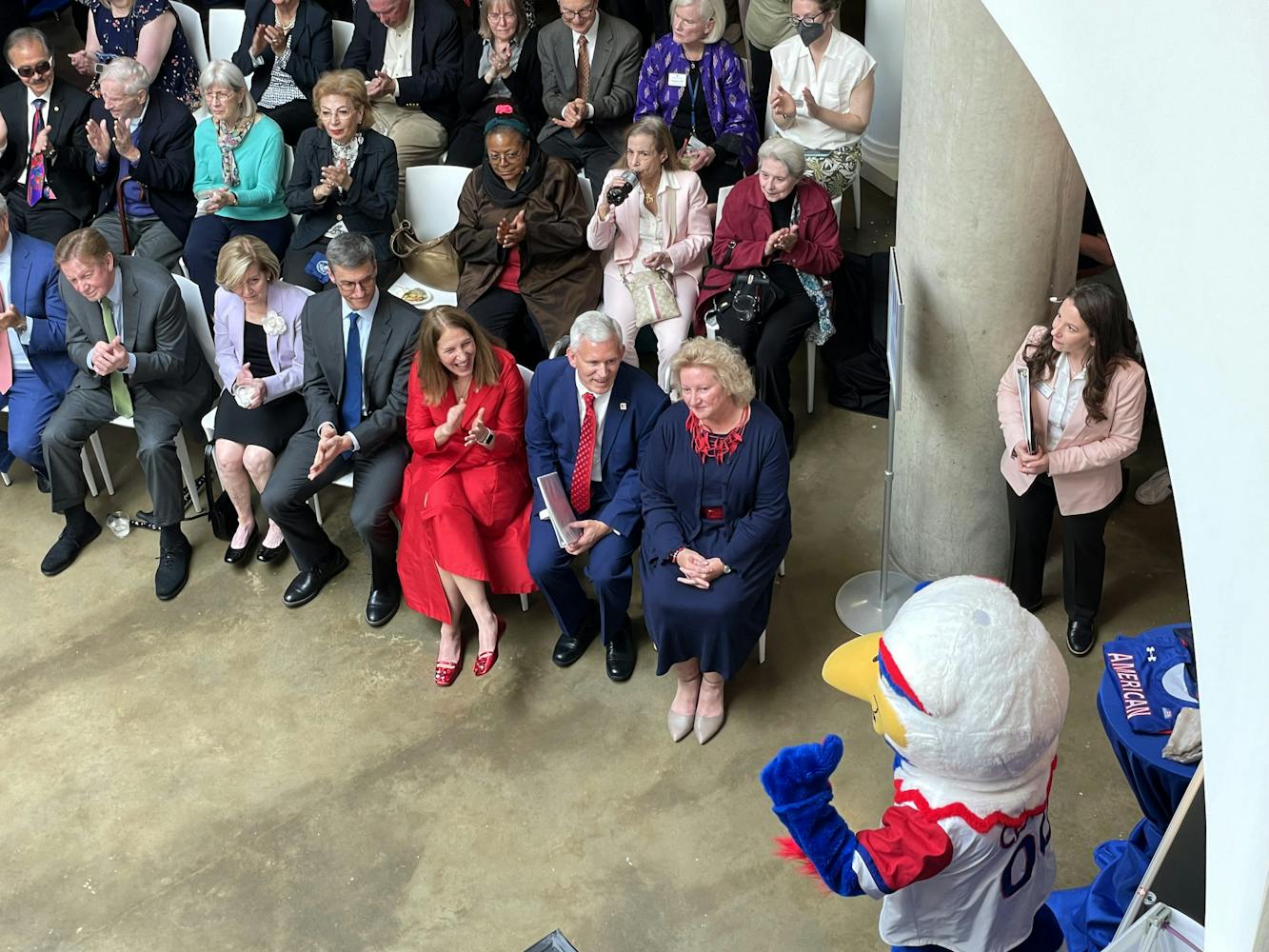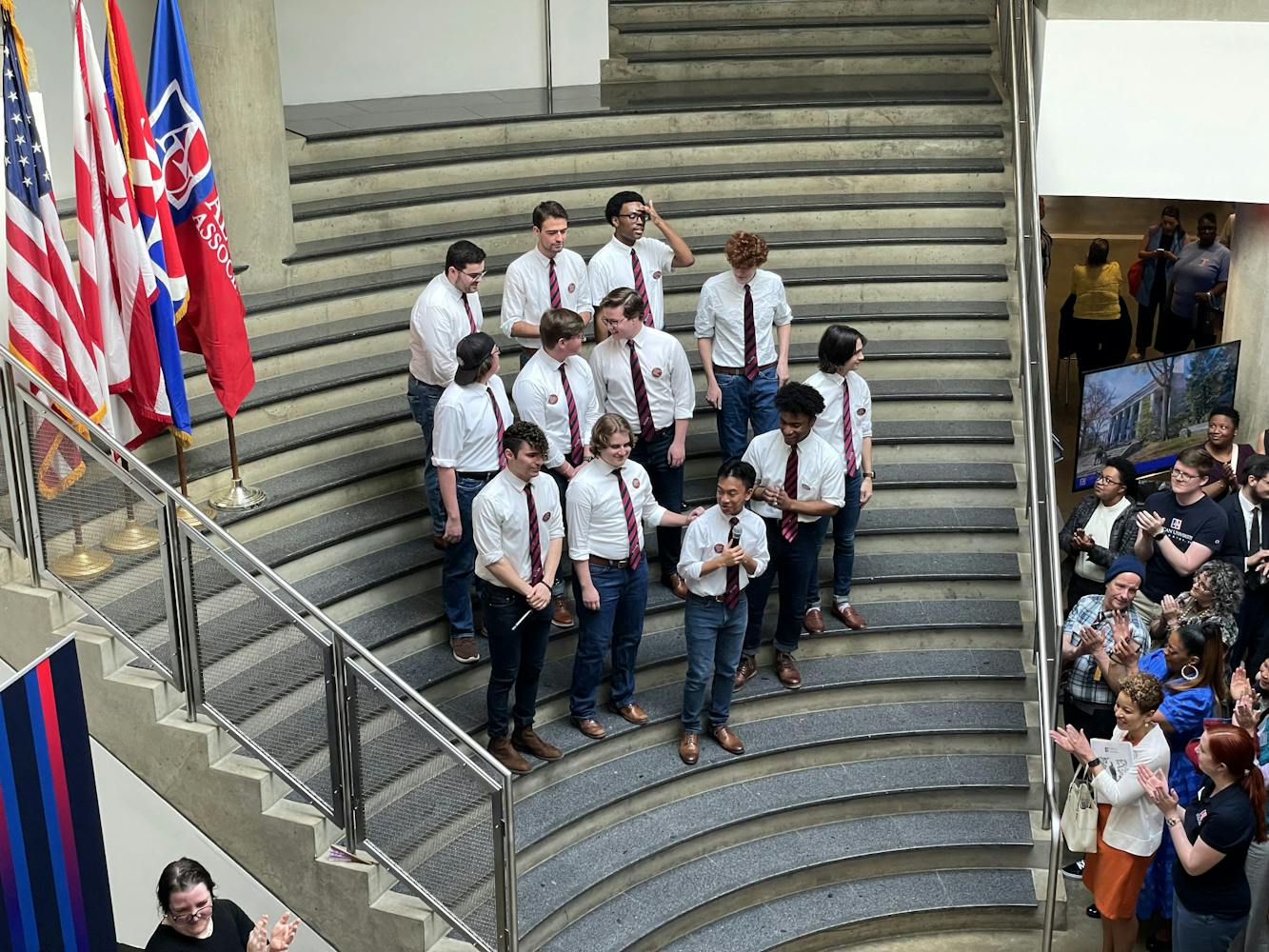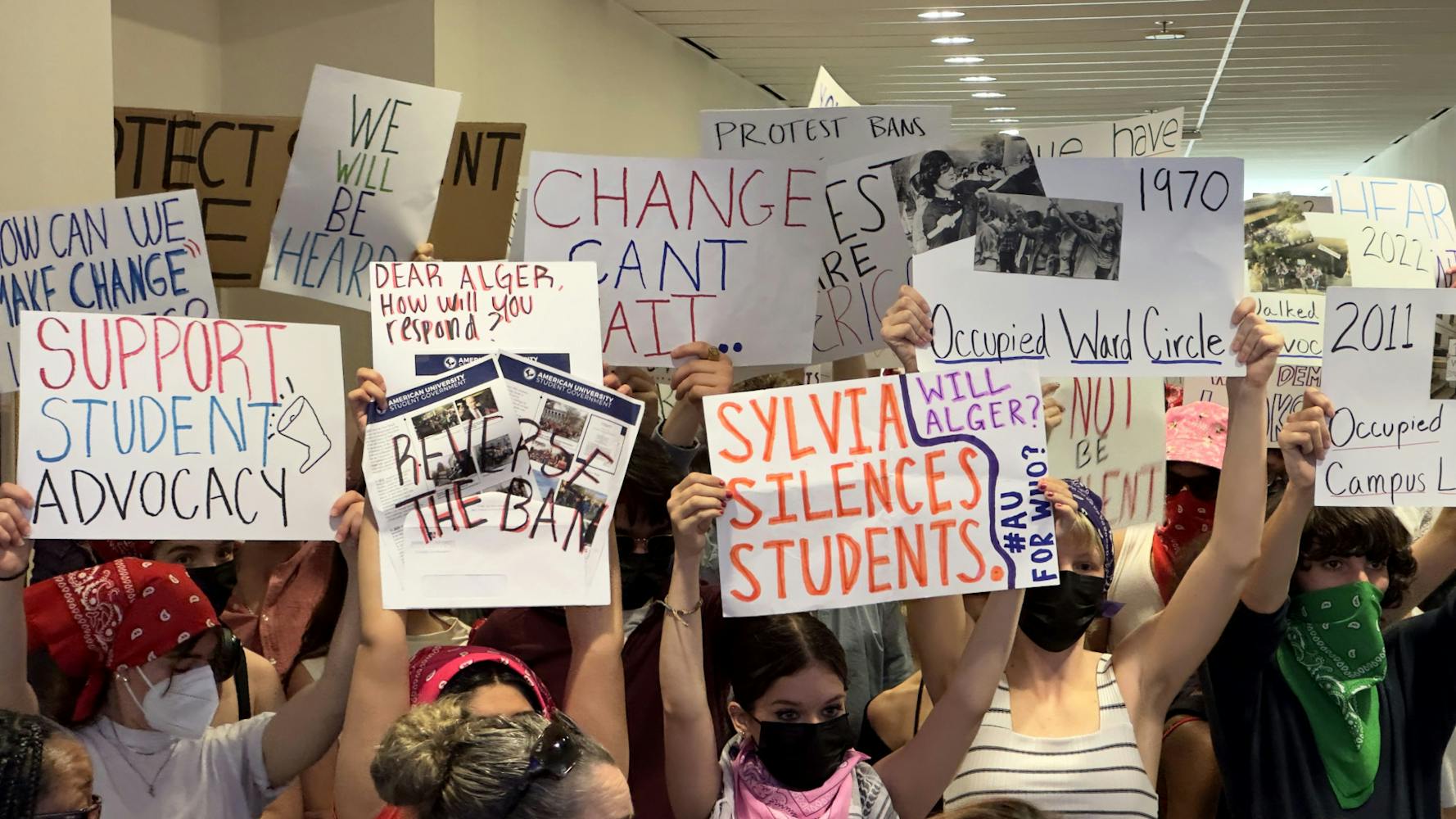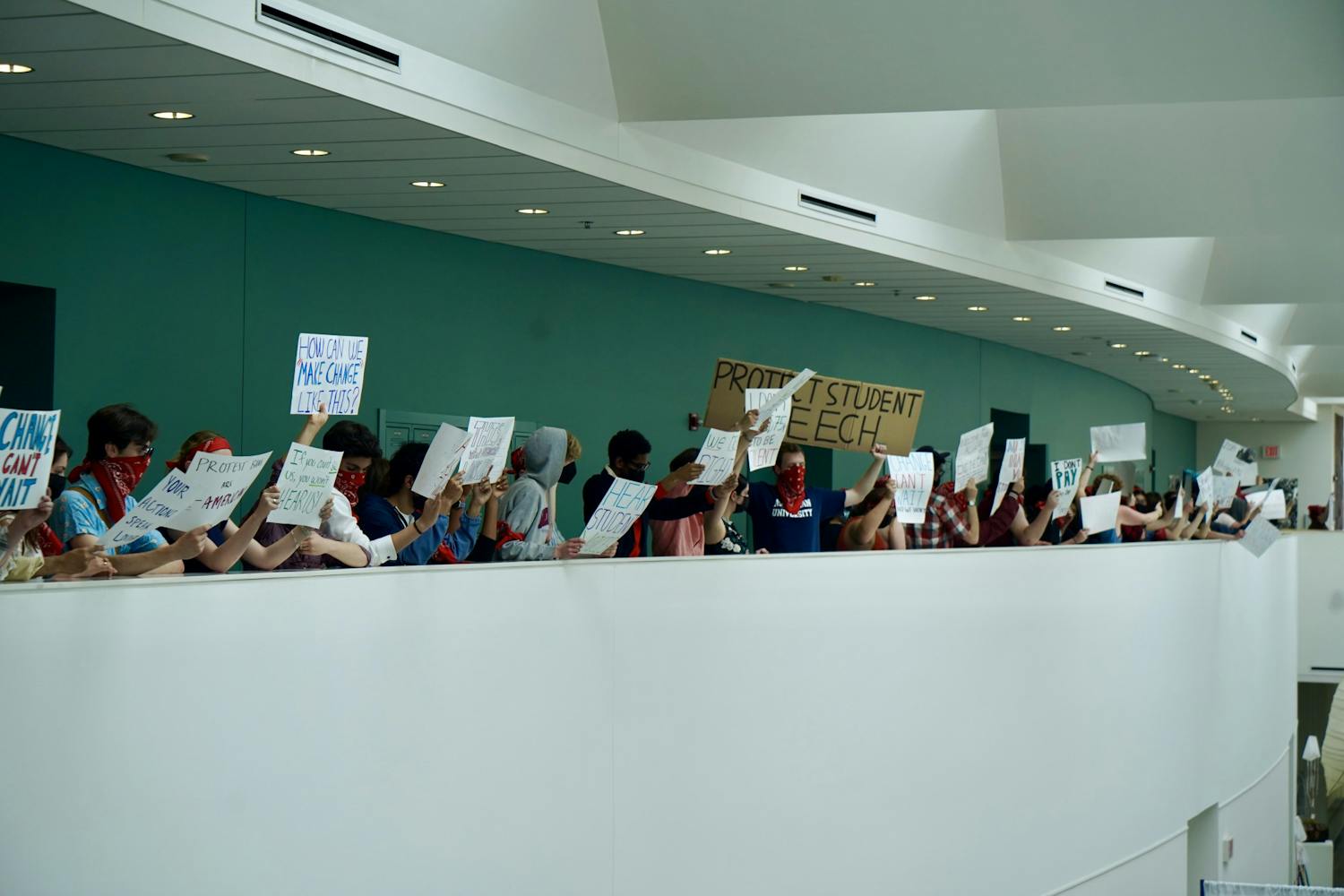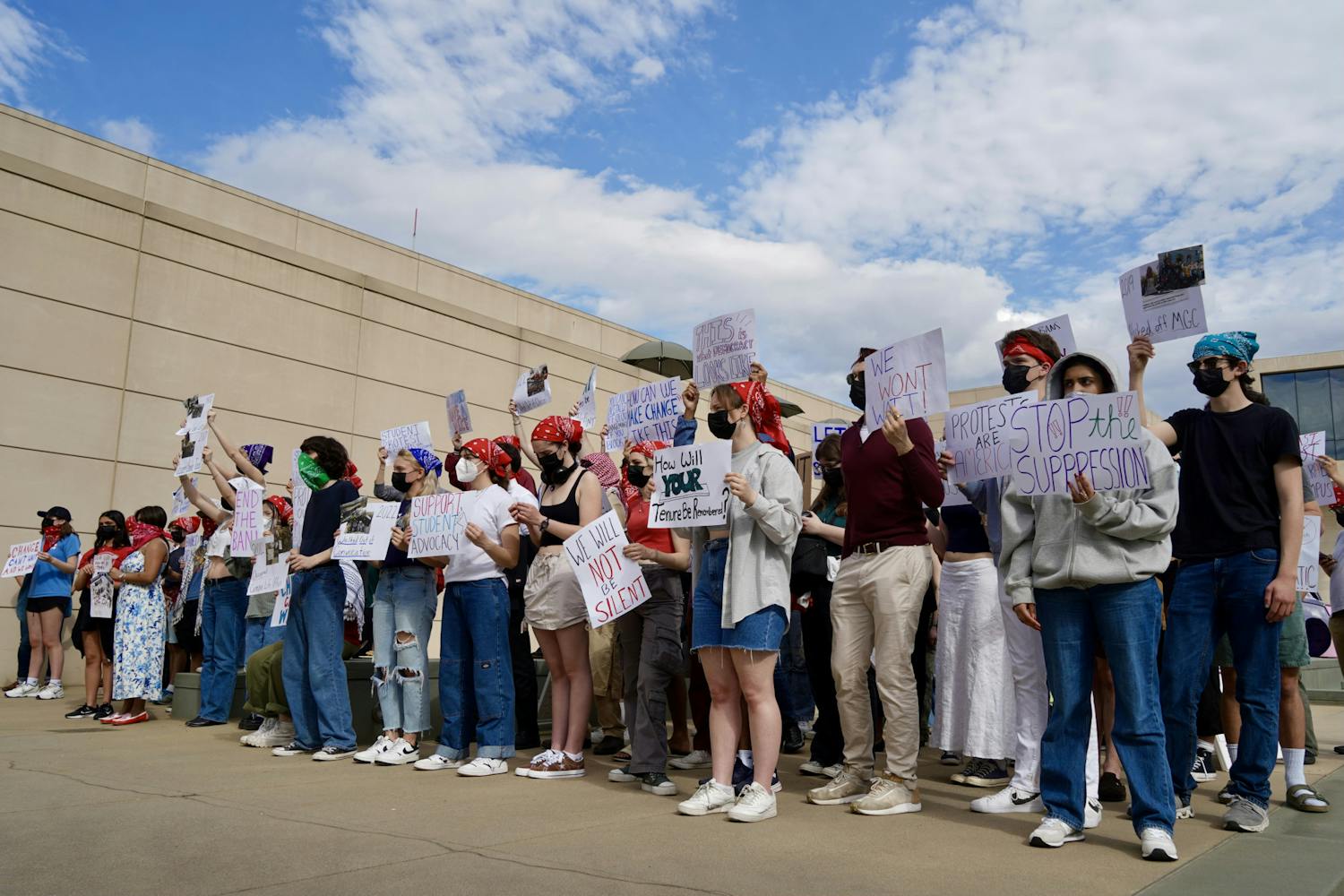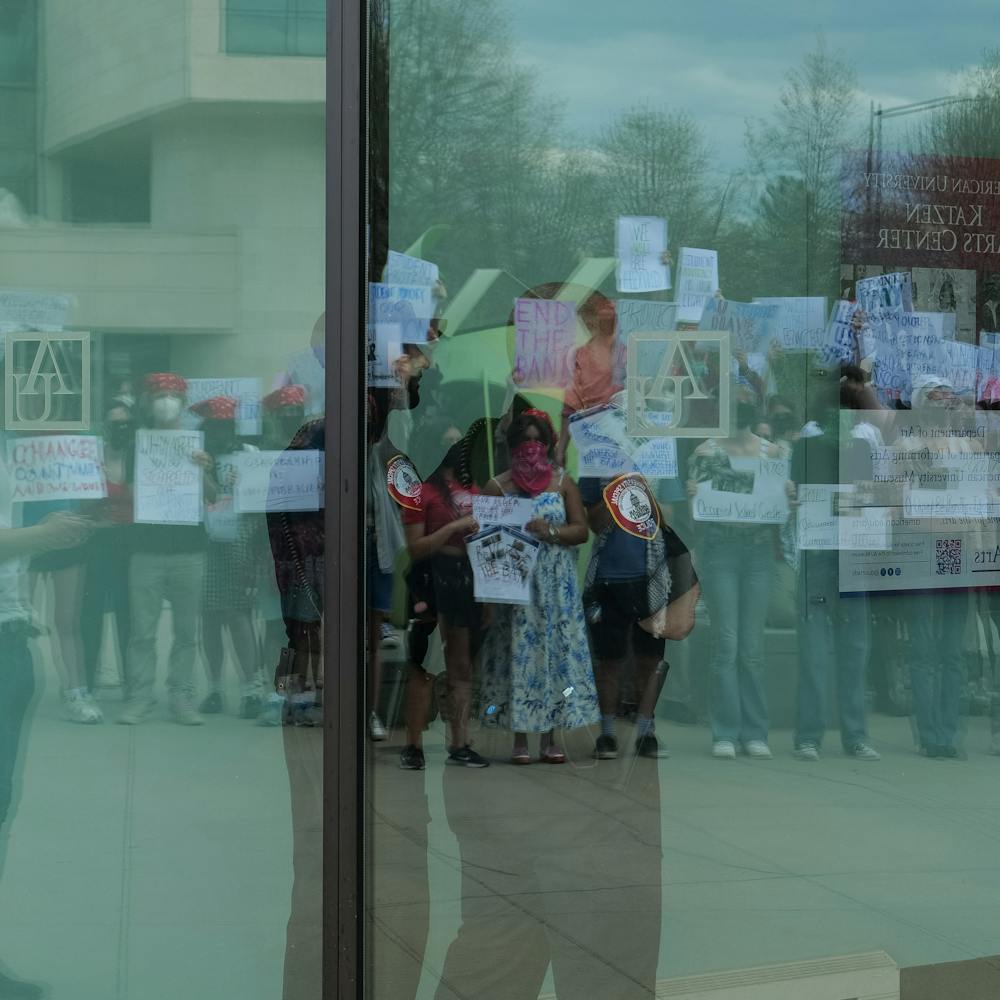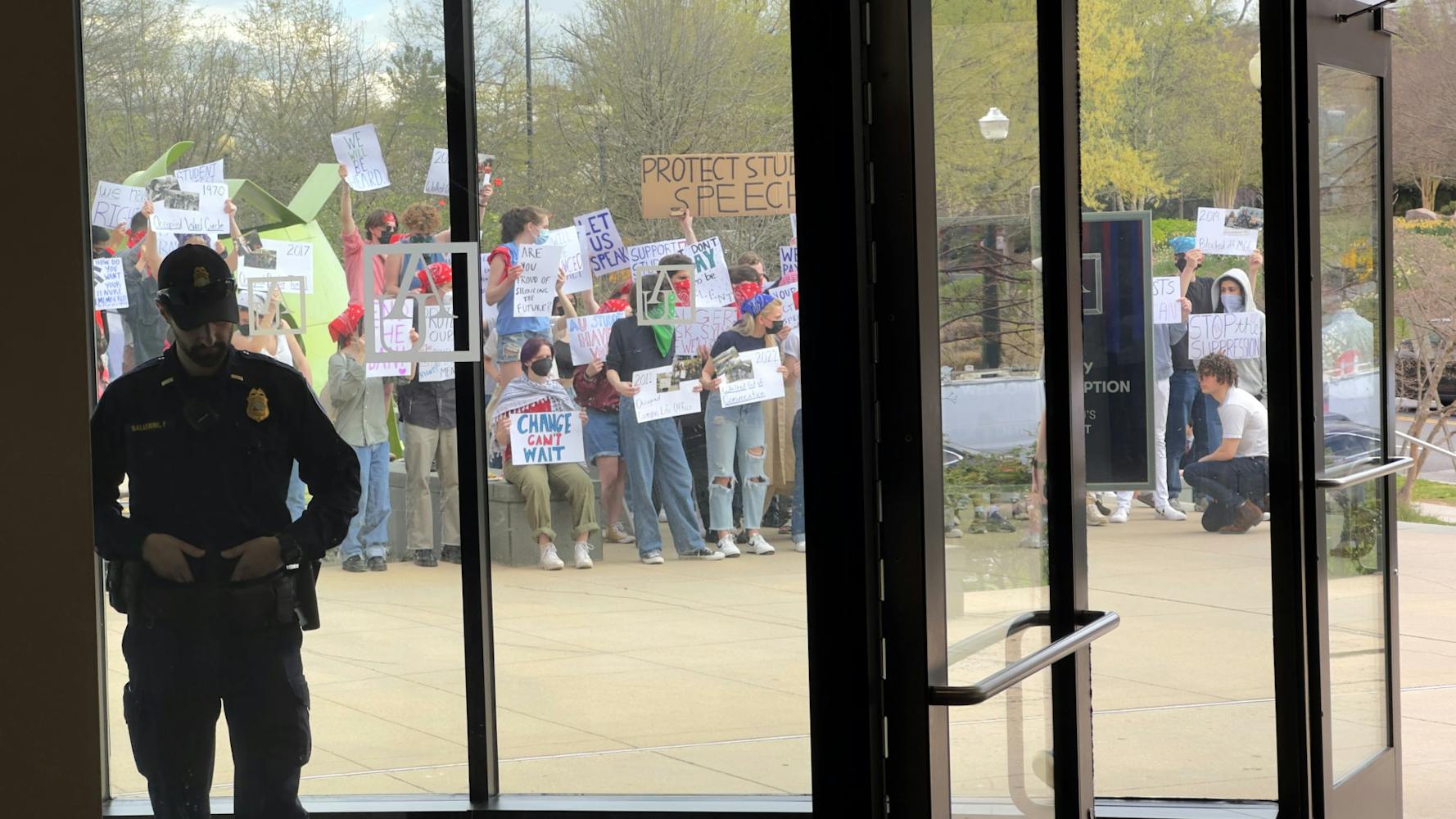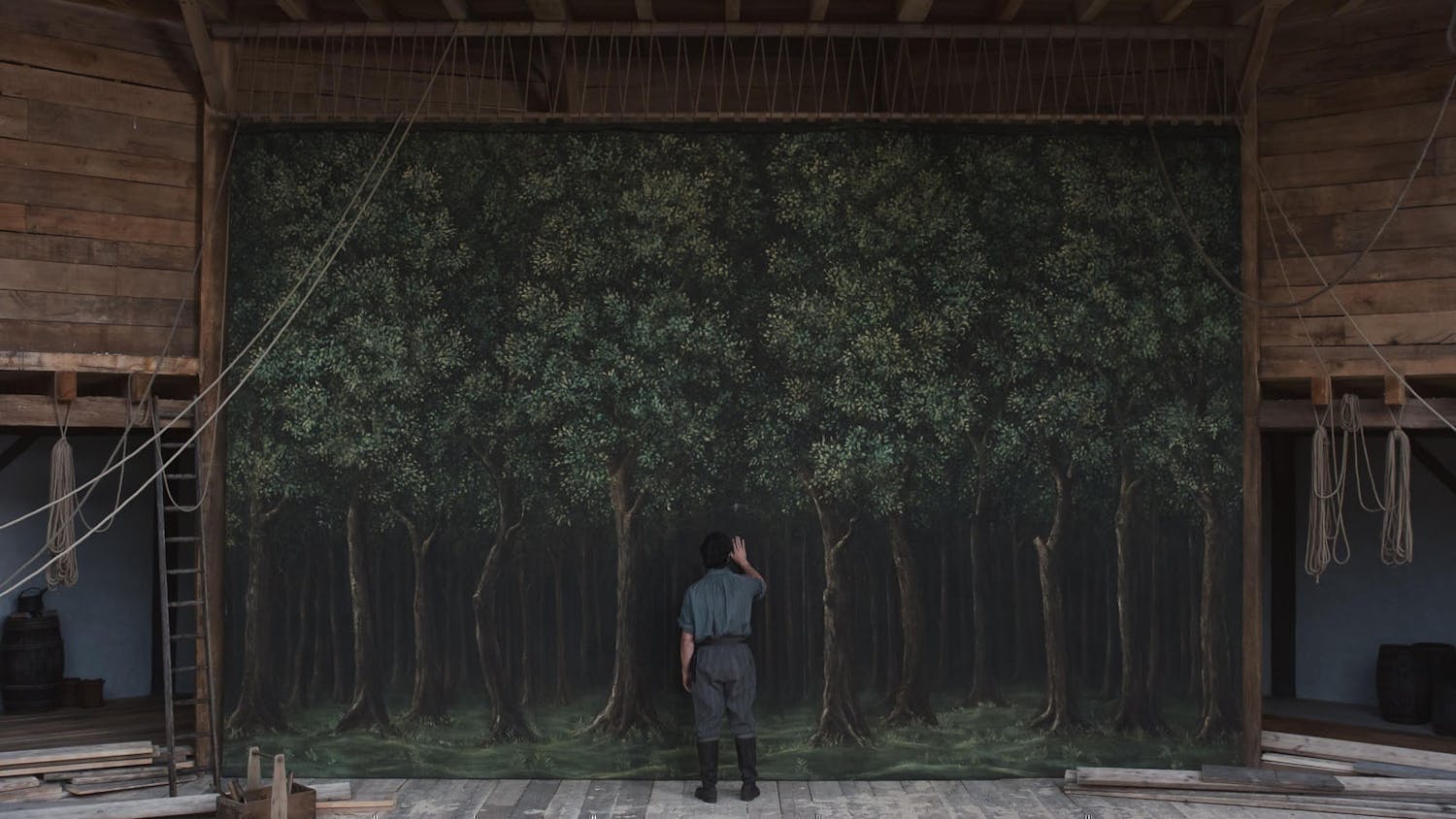Visit The Eagle's YouTube channel to view a short video about this article.
Incoming American University President Jonathan Alger quickly learned of the school’s rich history of protests as students demonstrated inside and outside of a welcome reception in the Katzen Arts Center on Wednesday, calling on him to rescind an indoor protest ban announced in January.
It was a busy event: University leaders welcomed the incoming president, Student Government leaders handed him a letter with a list of demands and protestors walked through the venue holding signs detailing AU’s rich protest history.
A ‘steady, experienced leader’
Board of Trustees Chair Gina Adams and other University leaders welcomed Alger in his first official appearance on campus.
Alger, the 12-year president of James Madison University who will take over from President Sylvia Burwell on July 1, told community members in a speech that he was excited to return to D.C., where he met his wife Mary Ann, and to lead AU.
“I have admired AU for many years, and over the past few months in particular I learned more of the stories of truly impressive students, faculty, staff and alumni,” Alger said in his remarks. “Those stories and learning about your accomplishments and accolades truly brought the institution into focus for me during this process.”
Scott Talan, an assistant professor of public relations & strategic communication who teaches a class on public speaking, gave Alger’s speech an A-minus.
“It wasn’t a perfect speech,” Talan told The Eagle. “It’s an A grade, but an A-minus, and the biggest deficiency would be not telling us a story he’s heard about someone at AU.”
Talan said the speech showed a “steady, experienced leader who is hopefully going to also be listening and learning ahead. But someone who, after 12 years at JMU and the other universities, is ready to make some change.”
Meg Norten, a freshman in the College of Arts and Sciences, attended the reception and said she was excited for the incoming president.
“He was very passionate about community engagement; that was something I really got from his speech,” Norten said. “We’re a very active campus, and that’s part of the reason why the protest happened in the first place.”
Alger faces many serious challenges as he joins AU, such as a $33 million deficit and budget cuts.
“There’s a lot of serious things that incoming President Alger will have to be looking at, addressing and hopefully attacking,” Talan said.
‘We won’t stop. Change can’t wait.’
One hour before the reception began, AU’s Student Government wrote in an email to students that it was holding a silent protest during the event to challenge the ban on indoor protests the University announced on Jan. 25.
The protest was held two days after the campus chapter of Students for Justice in Palestine announced that the University had placed them on disciplinary probation for a silent protest that moved through the School of International Service and Mary Graydon Center on Feb. 8.
As the reception concluded in the Katzen Rotunda, members of SG and other unaffiliated students took a similar approach: they entered the building near the AU Museum and walked to an elevator bank next to the rotunda. Most students participating in the protest wore face coverings to conceal their identities.
After some attendees left the building, demonstrators silently filed through the main hallway, upstairs. They stood for a few moments on the balcony overlooking the reception, displaying signs that called out the University’s ban and showed students’ long history of activism on campus.
“Student Government has been trying to find ways to combat [the protest ban] for a while,” said Laina Pond, a freshman in the School of Public Affairs and Senator-at-Large, but “nothing seemed to work.”
“The next step was protest,” Pond, who participated in the protest, told The Eagle. “That was the biggest way to be heard.”
“It’s hard enough being labeled as a student to try to get to admin and be like ‘hey I’m a student’ — when they hear ‘student’ they automatically don’t want to hear [you] — but if you’re standing outside with a sign it’s very hard for them to ignore,” Pond said.
Hannah Hajdu, a freshman in SPA and chair of the committee on accessibility, transparency and accountability in the Undergraduate Senate, echoed Pond’s words.
“I feel like this is the most direct way and, honestly, the most traditional way for American students to share their opinions with administration,” Hajdu said. “And I mean, the only way for us to respond to a protest ban was with protest.”
After roughly half an hour indoors, demonstrators stood outside the main entrance to Katzen for another thirty minutes, silently holding their signs.
Jackie Toth, a 2015 SIS alumna and attendee at the event, said the recent protest ban goes against AU’s history of student activism.
“I think American University students have always had a spirit of activism that is an asset,” Toth said. “And so to see it silenced like this is really frustrating as an alumna.”
Some attendees at the event showed their support for the protesters.
“There was an alumn[a] who took a picture of us and said, ‘I was doing this in the ‘90s for South Africa protesting apartheid.’ And she was like, ‘Keep going, keep doing this,’” said Sia Patel, a sophomore in the School of Communication and SG secretary’s communication director for student health and safety.
The demonstrators snapped in support of the alumna, Patel said, because “it shows that this is nothing new.”
Multiple demonstrators told The Eagle they felt hostility from administrators and AU Police Department officers at the event.
“AUPD officers are trained in de-escalation and professionally interact with community members to support safety,” Vice President and Chief Communications Officer Matt Bennett said in a statement to The Eagle.
Community members with “a specific concern” about AUPD officers can submit complaints, Bennett said.
Pond said that SG gave a letter to President Alger during the protest calling on him to rescind the new policies.
Pond said that SG decided to write a letter to Alger because “technically, since we’re the Student Government, the admin doesn’t have to listen to us,” but a written letter alongside the protest would be hard to ignore.
The letter called on Alger to rescind the ban on indoor protesting and the actions limiting postering, noting that these “[policies do] not ‘support safety’ or student’s ‘sense of belonging.’”
“We cannot think of a better way to introduce you to the student body than by highlighting the vital role that student activism and expression play in creating our campus culture,” SG wrote in its letter.
The letter also highlighted student protests on campus over the past few decades, concluding that “when American University has needed change, student protest has been at the center of progress.”
“For these reasons, we are hopeful that as we welcome you, future University President Jonathan Alger to American University, you will work alongside the students to honor our long history of student activism by rescinding this policy,” the letter concluded.
“There should be a response, and I think [Alger] knows that,” said Patel. “What his decision will be sets the tone for however long he stays at AU.”
Patel said she understands that internal politics may contribute to Alger’s response to students’ concerns.
“As the president, you have an obligation to serve the students and the faculty that are here, not the Board [of Trustees]. They don’t experience what it’s like to be on campus,” Patel said. “How is it that they can make decisions about what we can say, what we can’t say, where we can say it and where we can’t say it, when we’re the ones on campus all the time?”
Pond also said she hopes Alger will rescind the protest ban.
“As his first few weeks as president, if he ignores this, I think that it would reflect really poorly on him, and I hope that he recognizes that and recognizes that at American University we really like to protest,” she said. “We won’t stop. Change can’t wait.”
This article was edited by Kathryn Squyres, Tyler Davis and Abigail Turner. Copy editing done by Luna Jinks, Isabelle Kravis, Olivia Citarella and Ariana Kavoossi.

